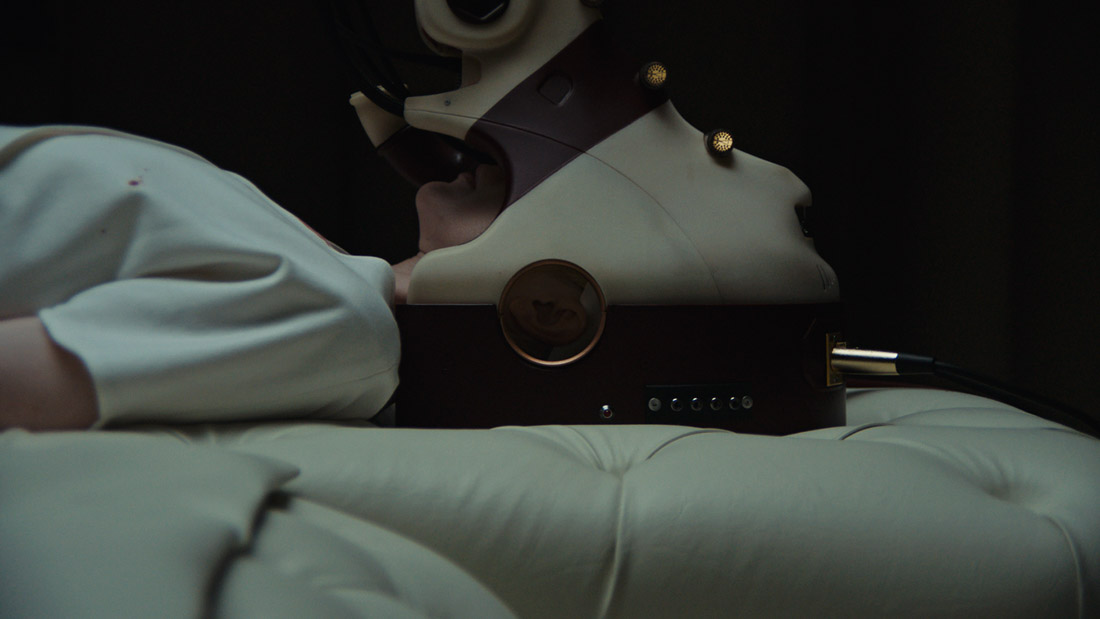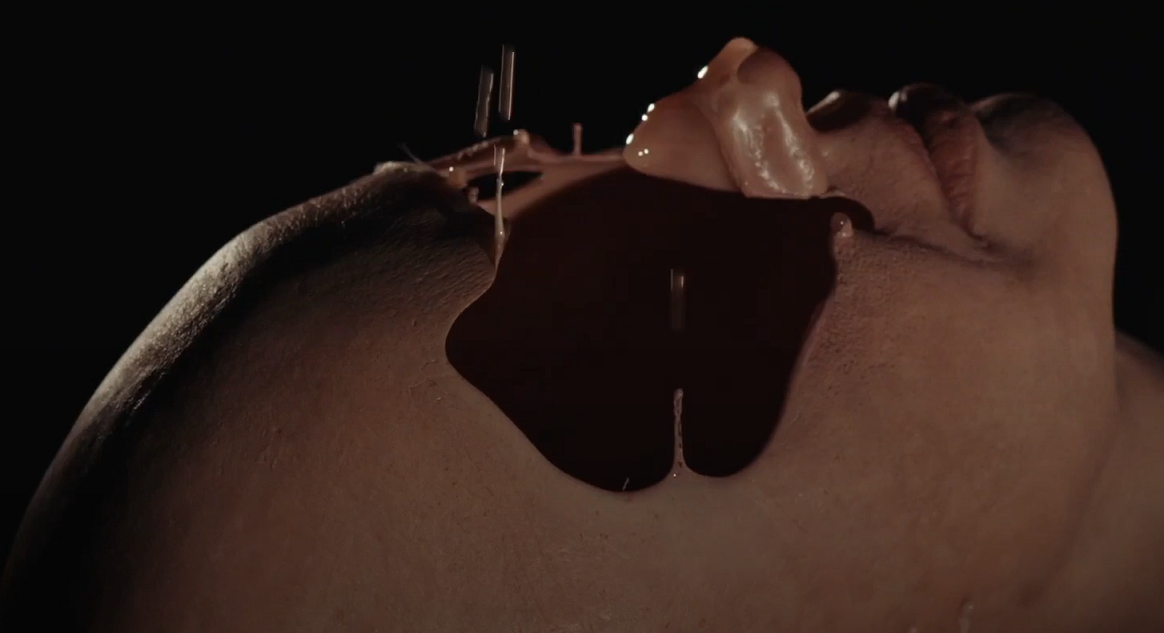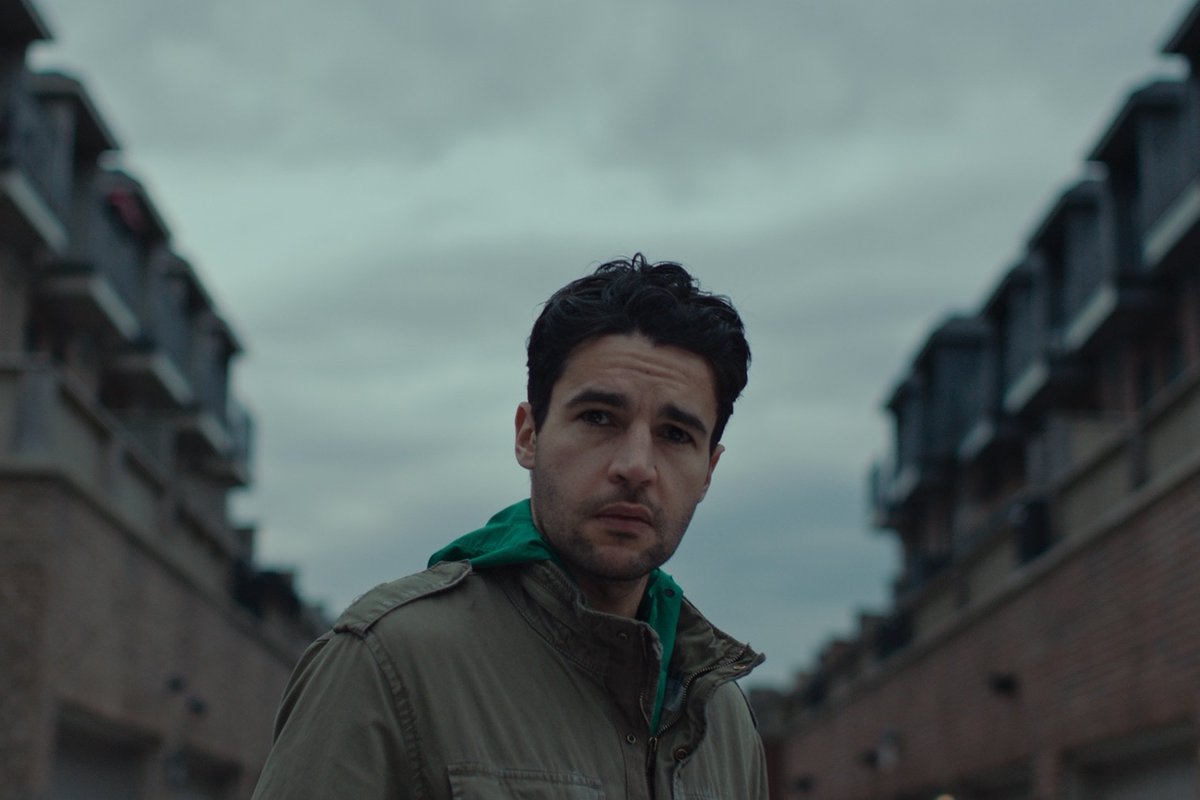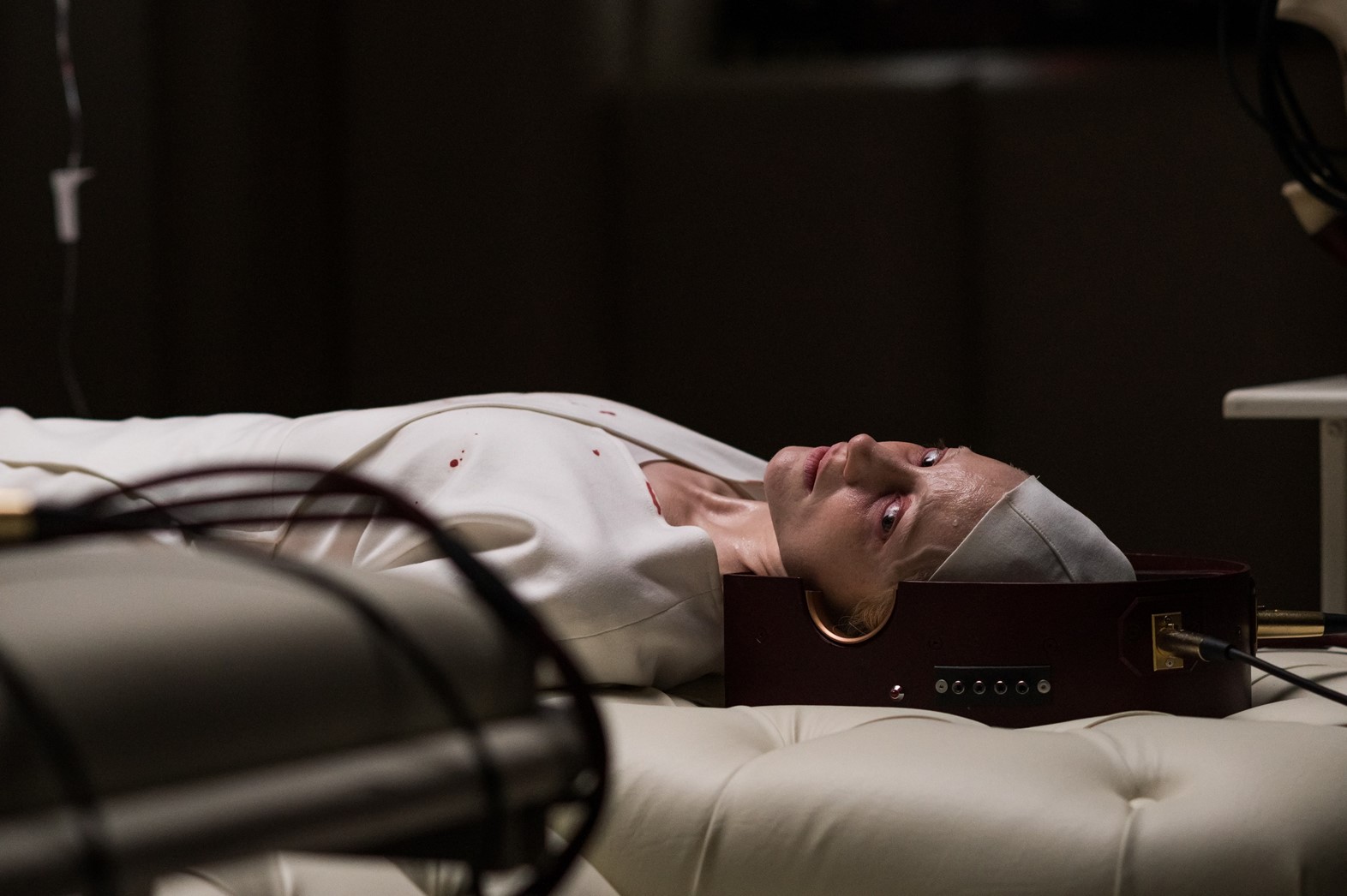You may know part of the name Brandon Cronenberg. The Cronenberg part is the easy part, as that’s the surname of David Cronenberg, the director of primarily sci-fi and horror movies, who may have peaked in the 1980s with the likes of Scanners, Videodrome and The Fly. Brandon is his son, and you might know him better except that it has taken him eight years after his first feature as director, Antiviral, to get a second one made. (As a side note, “Brandon” always struck me as an inordinately conventional name for the offspring of someone with David’s proclivities.)
Body horror runs in the Cronenberg family, as nearly all of David’s films involve some kind of rupture of the flesh, whether it’s the blending of biology and technology in eXistenZ, or just the grotesque way violence is presented in A History of Violence. The son has followed in the father’s footsteps first with Antiviral, and now with Possessor, his long-delayed follow-up that has just debuted in Australian cinemas. Unfortunately, another thing the Cronenbergs share is their facility for creating an indelible image at the expense of a strong story. Possessor at least one-ups Antiviral in the latter regard.
We know we’re in a Cronenberg movie straight away in Possessor, as a woman seeks out a spot between her corn rows to insert a syringe-like probe into her brain. This woman may look like actress Gabrielle Graham, but she’s being piloted, as it were, by Andrea Riseborough as Tasya Vos. Tasya is an agent designed to carry out jobs – murders, usually – in the guise of regular people who have access to the target, either because they have a close personal relationship to the target or because they wouldn’t arouse suspicion. Using an advanced technological procedure involving wires – think something like The Matrix – the possessor’s consciousness can be inserted into the host, and extracted when the job is finished.
That’s a pretty brain-frying reality for Tasya, and her brain is pretty much on the verge of being fried. She must undergo a battery of tests when she emerges, objects she must recognise as either familiar or foreign, to see how much of herself she’s retained – and how much has been left in the body of the host, who usually ends up committing suicide to tie up the loose ends. This obviously has a pretty big impact on her home life, as she’s had to leave her husband (Rossif Sutherland) and her young son (Gage Graham-Arbuthnot). But for her handler (Jennifer Jason Leigh), it’s always paramount to keep Tasya in shape for her next job – which in this case involves inhabiting the boyfriend (Christopher Abbott) of the daughter (Tuppence Middleton) of the head of a tech giant (Sean Bean), in the hopes of bringing that tech giant to its knees.
Possessor nails it on the concept front. As many films as there have been about body swapping, some of which have involved wires in people’s brains, this idea unfolds freshly enough to give you that invigorating feeling that comes with the best of sci-fi. The existential issues involved with sharing a brain with a host, one that does not understand that it is being invaded by an outside entity, continue that sense of thematic invigoration.
As might be expected, the film also excels at creating unforgettable imagery. Brandon Cronenberg shares a fascination with both of his father’s manifestations of body horror, the gruesome violence and the ideas of things being inserted where they should not go. There’s a huge amount of blood-letting in Possessor, bodies shredded and disfigured by sharp or blunt instruments. But, in the imagery chosen for the in-between world that represents the shared consciousness of host and possessor, there are also memorable visions of faces merging like conjoined twins, or melting away like chocolate in a furnace. These aren’t just abstract horror set pieces, but real commentary on the blended nature of the two minds, as when Abbott’s character is shown wearing a loose-fitting mask of Riseborough’s face, which stretches and droops in a way made all the more horrifying by the nihilistic score during that sequence.
If only the younger Cronenberg had more of a gift for story structure. The story starts out on the right foot by demonstrating a successful, comparatively straightforward completion of one job, which is what we need to get our bearings and understand how this outfit operates and how the technology works. The story seems to be pointed toward a climactic completion, or failure to complete, a second job, but it gets to that moment earlier in the story than anticipated, and then goes off on some tangents from there. The choice of where to go with the plot works in terms of exploring the themes of the struggle for domination between the possessor and the host, as well as for Tasya’s own struggle with personal mental integration. However, it leaves something to be desired in terms of the overall trajectory of the story.
You might expect that a story like this would provide a great showcase for an actor, and you’d be right. Although Riseborough’s Tasya is the main character, most of the time she’s wearing a disguise, so Christopher Abbott is the one doing most of the heavy lifting as Colin. Although Cronenberg doesn’t have it totally straight in terms of what percentage of Tasya and what percentage of Colin is coming through at any given time, and whether distinct personalities emerge as a result, that doesn’t limit Abbott in his presentation of a soul in torment. He’s extremely watchable as a man disintegrating, trying to make sense of things he doesn’t remember doing, things that may violate his core principles.
Possessor is a collection of really good elements that falls just shy of a coherent whole. That said, it certainly provides plenty to think about, ideas about the brain’s capacity to share its space, and to retain its own sense of coherent wholeness in the face of such an assault. Drape a bunch of distinctive imagery over the top of that and you’ve got the makings of a possible cult classic, which could slot in well with Brandon’s father’s most memorable work.



